Arlene Foster urges PM to replace 'unworkable' NI Brexit deal
- Published
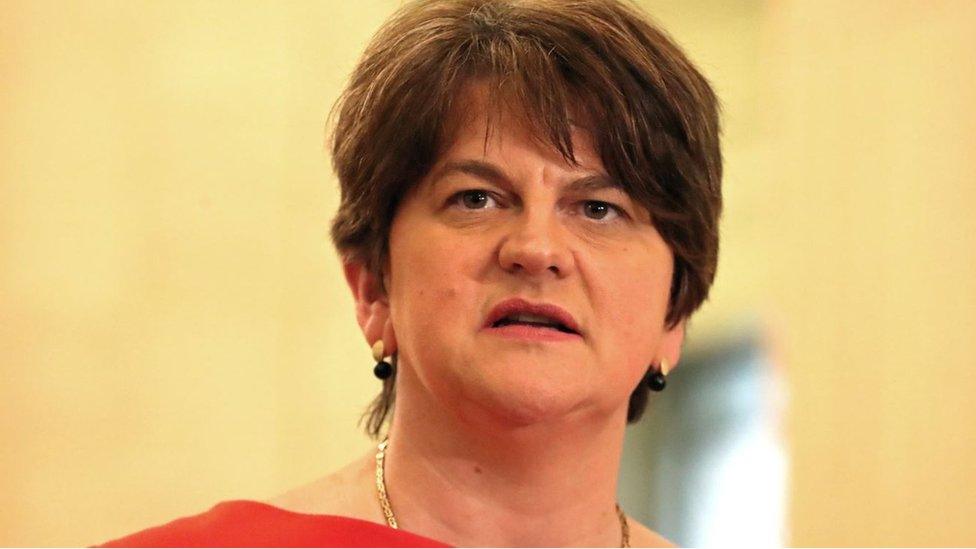
Arlene Foster said the row over vaccine exports was due to the EU's "vaccine embarrassment"
Arlene Foster has called on Boris Johnson to invoke part of the Brexit agreement to deal with problems in the movement of goods between GB and NI.
It comes as the EU reversed its decision to use the same mechanism to control the export of coronavirus vaccines from the EU into NI.
Northern Ireland's first minister said the move to trigger Article 16 of the NI Protocol was an "act of hostility".
Ireland's leader rejected her claim that the protocol is unworkable.
However, Taoiseach (Irish Prime Minister) Micheál Martin it was a mistake on the part of the European Commission to signal its intention to trigger Article 16 and lessons would have to be learned.
Meanwhile, cabinet office minister Michael Gove said he was "confident" the UK can now continue its vaccine programme and is "on track" to deliver 15 million jabs by 15 February.
Mr Gove said the EU bloc had recognised it "made a mistake" in signalling that it might trigger Article 16, which could have seen checks at the Irish border.
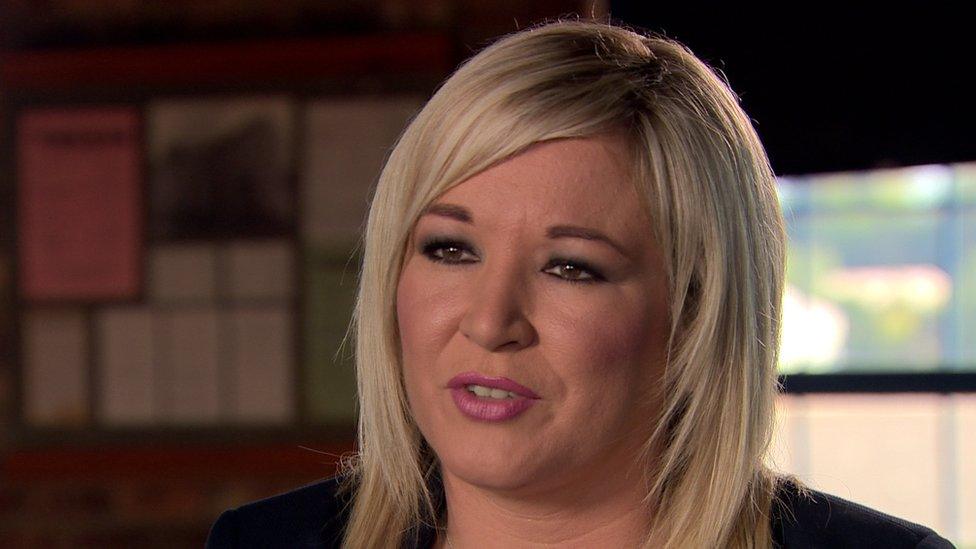
Michelle O'Neill said the EU had given Brexiteers a rod with which to beat the protocol
Earlier, Northern Ireland Deputy First Minister Michelle O'Neill said the EU had been "unwise and ill-judged".
Mrs Foster, the leader of the Democratic Unionist Party (DUP), said the EU's move was prompted by what she called its "vaccine embarrassment".
EU countries are dealing with a big shortfall in vaccines and there was concern the Irish border could be used as a backdoor for supplies entering the UK.
The protocol, which is part of the Withdrawal Agreement, is designed to allow the free movement of goods from the EU into NI, and prevent the need for a hard border on the island of Ireland.
Mrs Foster urged the prime minister to use Article 16 of the protocol to take immediate action to address trade flow problems between GB and NI, as some businesses grapple with post-Brexit arrangements for importing food products from GB.
Since 1 January, there has been a new trade border between Northern Ireland and the rest of the UK - the so-called Irish Sea border - because Northern Ireland has stayed in the EU single market for goods and enforces EU customs rules at its ports.
There have been calls from unionist parties to reduce checks on goods entering Northern Ireland from the rest of the UK but the government insists the new arrangements are not creating serious difficulties.
The protocol itself was "unworkable" and should be replaced, Mrs Foster told BBC Radio 4's Today programme.
She added it was based on a "misunderstanding" of the Good Friday Agreement, the two-decade-old deal to maintain peace in Northern Ireland.
"This protocol that was meant to bring about peace and harmony in Northern Ireland is doing quite the reverse," she said.


Last night Stephen Kelly's phone rang off the hook.
As chief executive of Manufacturing Northern Ireland his members were clamouring to know what on earth the European Commission's decision meant for their businesses.
"We'd just started to get used to the new regime - and now they want to rip it all up again?"
For business, the decision to trigger Article 16 and subsequent U-turn was a test that delivered a swift result, but raised the spectre of many more.
A month on from the Brexit deal and companies were aghast at the prospect that the European Commission could so quickly trigger a change that was only meant for the most egregious circumstances.
The Brexit deal and protocol which eliminated the need for a border on the island of Ireland is, businesses feel, vital for maintaining peace and prosperity.
Arlene Foster said this morning the protocol isn't working.
There are indeed trade issues relating to the implementation of barriers between Great Britain and Northern Ireland, delays, cancellations.
But experts say the protocol is doing exactly as it was planned to do - which is ensuring goods can flow friction free across the island of Ireland's border.

Ms O'Neill, the Sinn Féin vice-president, said the EU had given "the Brexiteers a rod to beat the protocol with and that is unfortunate because the protocol is absolutely necessary".
"There was a lot of attention and effort and dedication put in to protecting the all-island economy," she added.
On Friday night, the European Commission backtracked on its plan to invoke Article 16 of the Northern Ireland Protocol over the export of vaccines.
Triggering the mechanism would have temporarily placed export controls on the movement of vaccines to prevent NI being used as a backdoor to move them from the bloc into the UK.
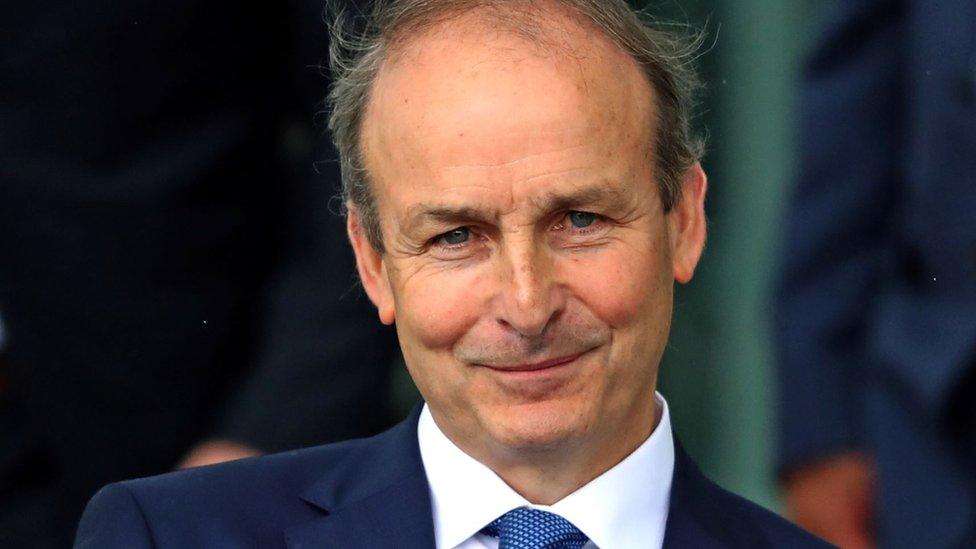
Micheál Martin rejected Mrs Foster's claim that the NI protocol is unworkable
The clause allows the EU and UK to chose to suspend any aspects they consider are causing "economic, societal or environmental difficulties".
The Irish government was not consulted on the EU's initial decision to invoke the article.
Taoiseach Mr Martin told RTÉ News on Saturday that the EC had made a mistake but that any damage done could be repaired.
He said he had spoken to Boris Johnson on Friday night and also had several conversations with President von der Leyen.
He said that dialogue would continue to ensure that lessons are learned.


Whatever the sequencing and the hard conversation between Dublin and Brussels, political parties in Northern Ireland are already picking through the wreckage to salvage what they can.
For Sinn Féin, the SDLP and the Alliance Party, it is all about damage limitation and ensuring Brussels has learned lessons from its costly political blunder.
For the DUP and Ulster Unionists, the EU's reaction has supercharged their onslaught on the Northern Ireland protocol.
They can say that, at the first sign of trouble, Brussels effectively advocated for the same hard land border it had fought years to prevent.
It was a political penalty kick for unionists into an open goal.

Parties in Northern Ireland were unanimously opposed to the invocation of Article 16.
Ulster Unionist Party leader Steve Aiken called it a "tipping point".
"The EU cynically and deliberately used Northern Ireland in an attempt to cover up their vaccine omnishambles with a political one," he said.
"The EU's actions show that they do not have our best interests at heart."
The SDLP claimed Mrs Foster's position was illogical, with the party's South Belfast Stormont assembly member Matthew O'Toole saying: "Invoking Article 16 was an indefensible act which has been rectified.
"But the logic at work from Arlene Foster is remarkable: Triggering Article 16 was aggressive and hostile so let's force London to do same?"
Alliance Party MP Stephen Farry said it was something which "should not have happened" and that "trust and confidence now needs to be rebuilt".
Irish Foreign Minister Simon Coveney said "lessons should be learned" about the way the matter had been handled.
"The protocol is not something to be tampered with lightly," he tweeted, external.
"It's an essential, hard won compromise, protecting peace and trade for many."
- Published30 January 2021
- Published30 January 2021
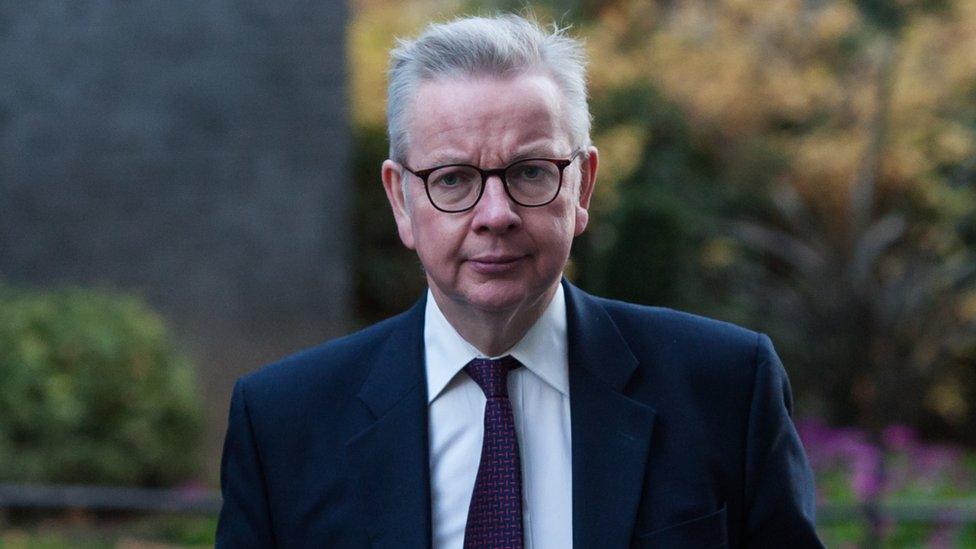
- Published29 January 2021
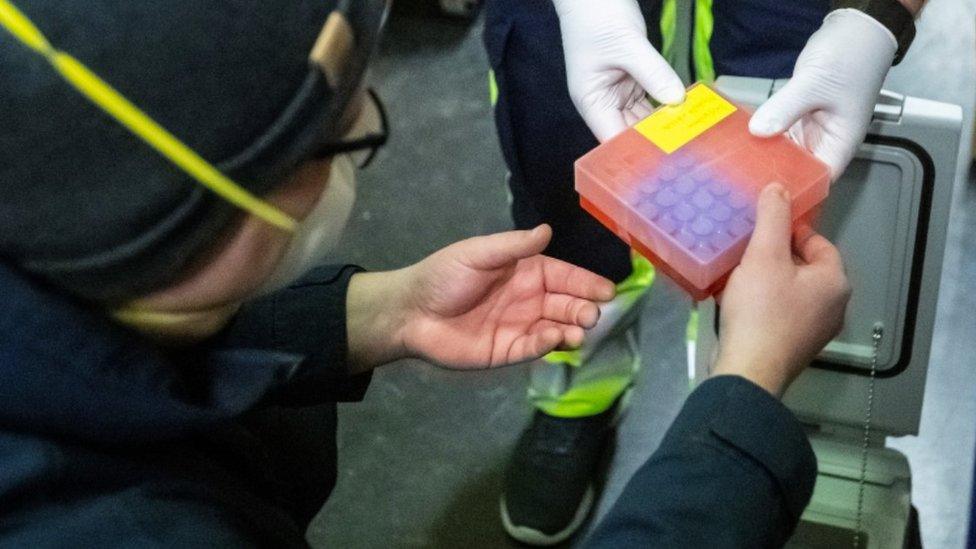
- Published30 January 2021
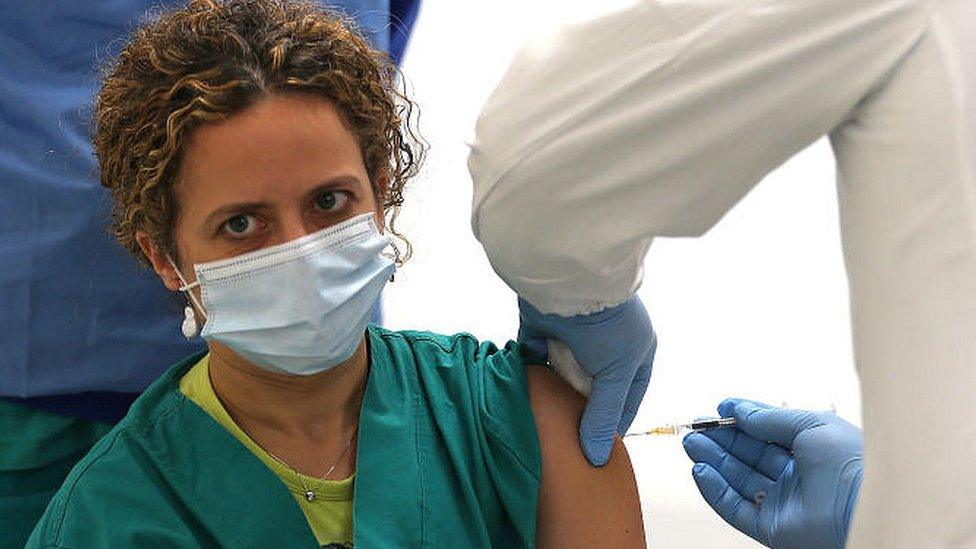
- Published29 January 2021